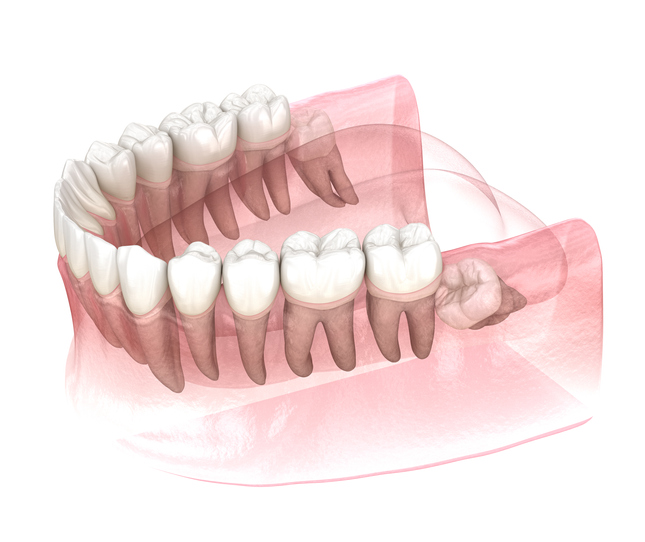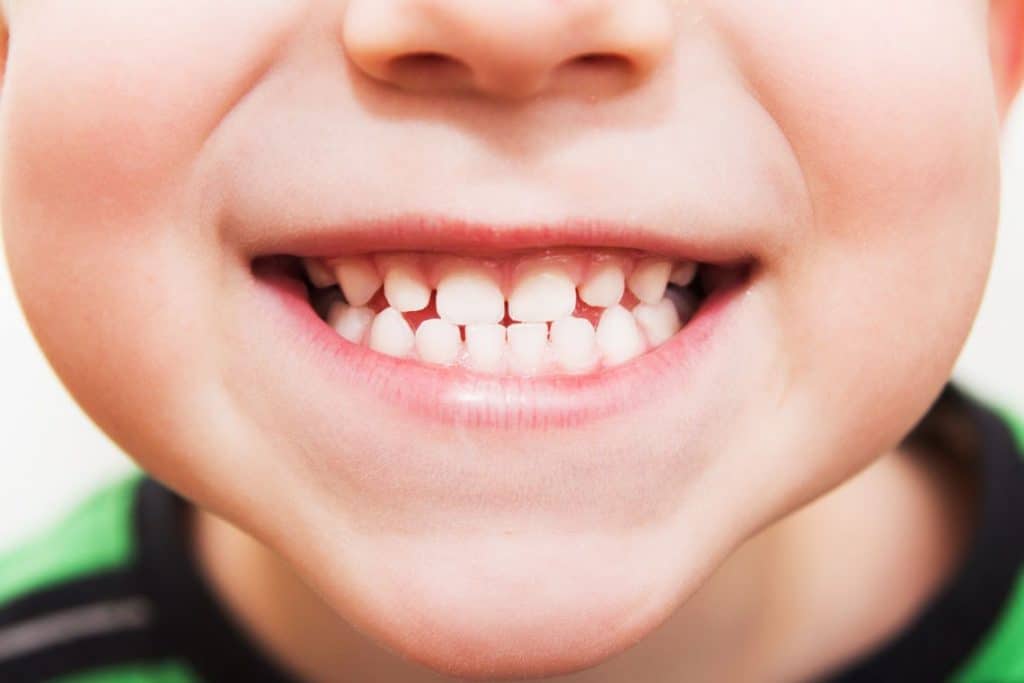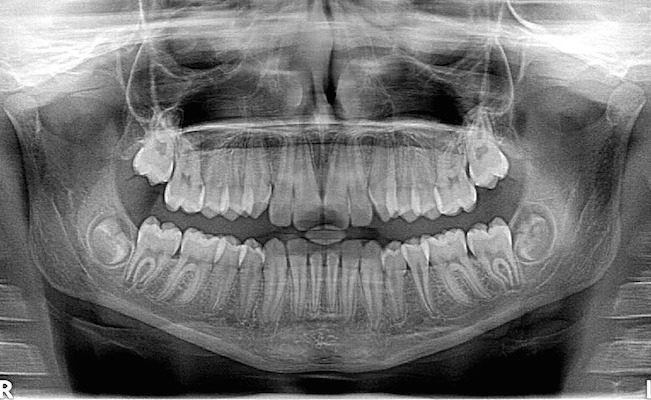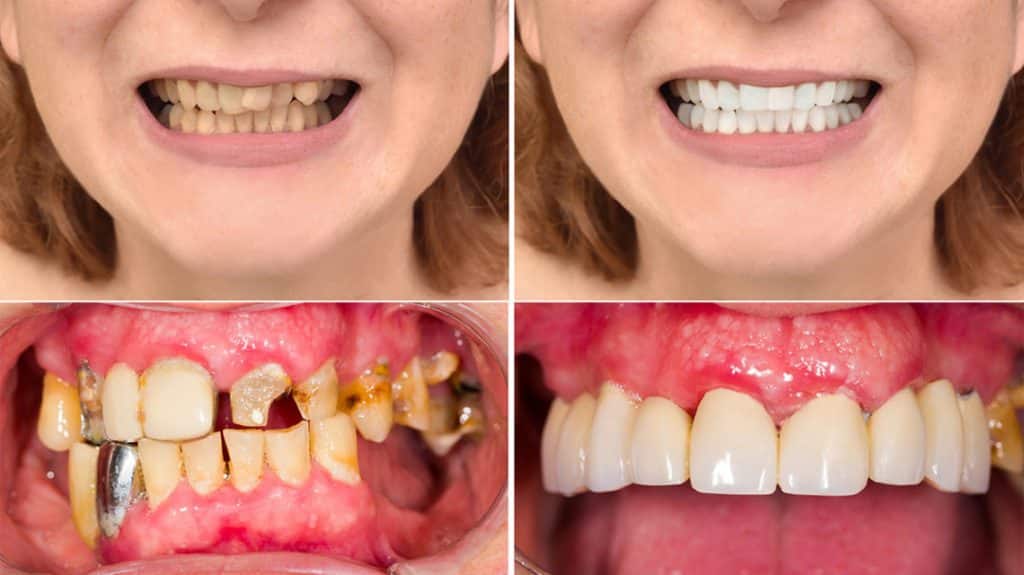Everyone does not have wisdom teeth. Wisdom teeth are a third set of molars that may or may not develop in some individuals.
Wisdom teeth, also known as third molars, are the last teeth to develop and usually appear between the ages of 17 and 25. However, not everyone will develop wisdom teeth. The presence or absence of wisdom teeth varies among individuals, and some people may have one, two, three, or none at all.
The reason for this variation is believed to be evolutionary changes in jaw size and dietary habits over time. While some individuals may experience problems such as impacted or misaligned wisdom teeth, others may never have them develop at all. Regular dental check-ups and x-rays can help determine the presence and proper development of wisdom teeth.

Credit: www.dentalexcell.com
Understanding The Role Of Wisdom Teeth (1)
Wisdom teeth, also known as third molars, are a set of four teeth that usually emerge in adults between the ages of 17 and 25. These teeth are located at the back of the mouth and are the last to develop.
They often cause various dental issues as they may become impacted or fail to properly align with the rest of the teeth. Wisdom teeth can lead to pain, swelling, infection, and damage to surrounding teeth if not addressed. While not everyone develops wisdom teeth, those who do might require their removal to prevent complications.
Understanding the definition and role of wisdom teeth, as well as their location and structure, enables individuals to make informed decisions about their dental health. By recognizing the significance of wisdom teeth, individuals can seek appropriate dental care and maintain optimal oral health.
Factors Influencing Wisdom Teeth Development (2)
Wisdom teeth development is influenced by genetic and hereditary factors as well as age and dental development phase. Jaw size and available space for eruption also play a significant role. The presence of wisdom teeth varies among individuals, with some people having all four, while others may have none or only one or two.
The genetic and hereditary factors determine the size and shape of the jaw, which can affect the development and eruption of wisdom teeth. Age and dental development phase are important because wisdom teeth typically start developing in the late teenage years or early twenties, when the jaw is fully developed.
Additionally, the amount of available space in the jaw can impact the eruption of wisdom teeth. Therefore, several factors come into play when it comes to the existence and development of wisdom teeth.
Common Issues And Complications With Wisdom Teeth (3)
Wisdom teeth are not present in everyone and can cause common issues and complications. One such issue is impacted wisdom teeth, where they don’t have enough room to fully emerge. This can lead to pain and discomfort. Another problem is infection and decay in the wisdom teeth due to their location at the back of the mouth, making them difficult to clean properly.
Additionally, wisdom teeth can cause crowding and misalignment of surrounding teeth, leading to bite problems and the need for orthodontic treatment. It’s important to monitor the growth and development of wisdom teeth through regular dental check-ups to address any potential issues early on.
Proper care and timely intervention can prevent complications associated with wisdom teeth.
When To Remove Wisdom Teeth (4)
Wisdom teeth are not present in everyone, but their removal may be necessary for some individuals. Signs and symptoms that indicate the need for extraction include pain and discomfort. Dental professionals often recommend removing wisdom teeth to prevent future dental issues.
Extraction may be advised if the teeth are impacted, causing crowding or misalignment of the remaining teeth. Additionally, if the wisdom teeth are partially erupted, it can lead to gum disease and infection. The procedure is typically done under local or general anesthesia, ensuring minimal pain for the patient.
Wisdom tooth removal is a common dental procedure that can help maintain oral health and prevent future complications.
The Extraction Process And Recovery (5)
Wisdom teeth are not present in everyone’s mouth and may need to be extracted. The extraction process involves various techniques such as surgical extraction or simple extraction. Before the extraction, it is crucial to prepare by informing the dentist about any allergies or medications being taken.
The dentist will then evaluate the position of the wisdom teeth and determine the best extraction technique. Once the extraction is complete, the recovery process begins. This includes following post-operative care instructions, such as avoiding strenuous activities and consuming soft foods.
Pain and swelling can be managed with prescribed medications and applying cold compresses. It is important to maintain good oral hygiene and keep the extraction site clean to prevent infection. Following these tips will ensure a smooth healing process and a healthy recovery after wisdom teeth removal.
Future Perspectives On Wisdom Teeth (6)
Wisdom teeth, also known as third molars, are not present in everyone. Dental research and development have led to advancements in understanding these teeth. Alternative treatment options have become more common, allowing individuals to explore different approaches. The dental care field continues to evolve, with the latest trends and predictions focusing on oral health.
New techniques and technologies aim to improve dental practices and patient experiences. As researchers better comprehend the complexities of wisdom teeth, future perspectives offer hope for more personalized and effective treatments. Patients can look forward to tailored approaches to wisdom teeth management based on individual needs and oral health conditions.
The ongoing advancements in dental science truly hold immense potential for the future of wisdom teeth treatment and care.
Frequently Asked Questions On Does Everyone Have Wisdom Teeth
Are Wisdom Teeth Necessary For Everyone?
Wisdom teeth are not necessary for everyone. Some people may not develop wisdom teeth at all, while others may only have one or two. It’s important to note that the presence or absence of wisdom teeth doesn’t affect a person’s overall oral health.
Why Do We Have Wisdom Teeth?
Wisdom teeth were useful in our ancestors who had larger jaws and needed the extra teeth to chew tough and coarse foods. However, as our diets have changed, our jaws have become smaller, and many people no longer have enough space for their wisdom teeth to fully emerge.
Can Wisdom Teeth Cause Problems?
Yes, wisdom teeth can cause various problems such as impaction, crowding, and infection. When there isn’t enough space in the mouth for the wisdom teeth to come through, they can become impacted and cause pain and swelling. Infections and damage to nearby teeth can also occur if the wisdom teeth are not properly aligned.
When Should Wisdom Teeth Be Removed?
Wisdom teeth are often recommended for removal if they are causing pain, crowding, or other issues. Your dentist or oral surgeon will evaluate your specific case and recommend the appropriate time for removal, which can vary depending on factors such as age, development, and oral health.
What Is The Procedure For Wisdom Teeth Removal?
The procedure for wisdom teeth removal involves making an incision in the gum tissue, removing any bone that may be blocking the tooth, and then extracting the tooth. Depending on the complexity of the case, the procedure can be performed under local anesthesia or with the use of sedation or general anesthesia.
After the procedure, proper care and follow-up appointments are necessary for a smooth recovery.
Conclusion
To sum up, the presence of wisdom teeth varies among individuals. While some people never develop them, others may experience discomfort due to their eruption or lack of space in the jaw. Wisdom teeth are remnants from our ancestors, serving a purpose in their diet of tough, unprocessed foods.
However, with the evolution of our diets and smaller jaws, wisdom teeth have become more of a problem than a benefit. Dentists often recommend removing wisdom teeth to prevent complications such as infections, crowding, and damage to adjacent teeth. Regular dental check-ups and x-rays can help identify the presence and position of wisdom teeth early on.
It is essential to consult with a dental professional to determine the best course of action regarding the management of wisdom teeth and to ensure optimal oral health. Remember, every individual’s situation is unique, so professional advice is key.








